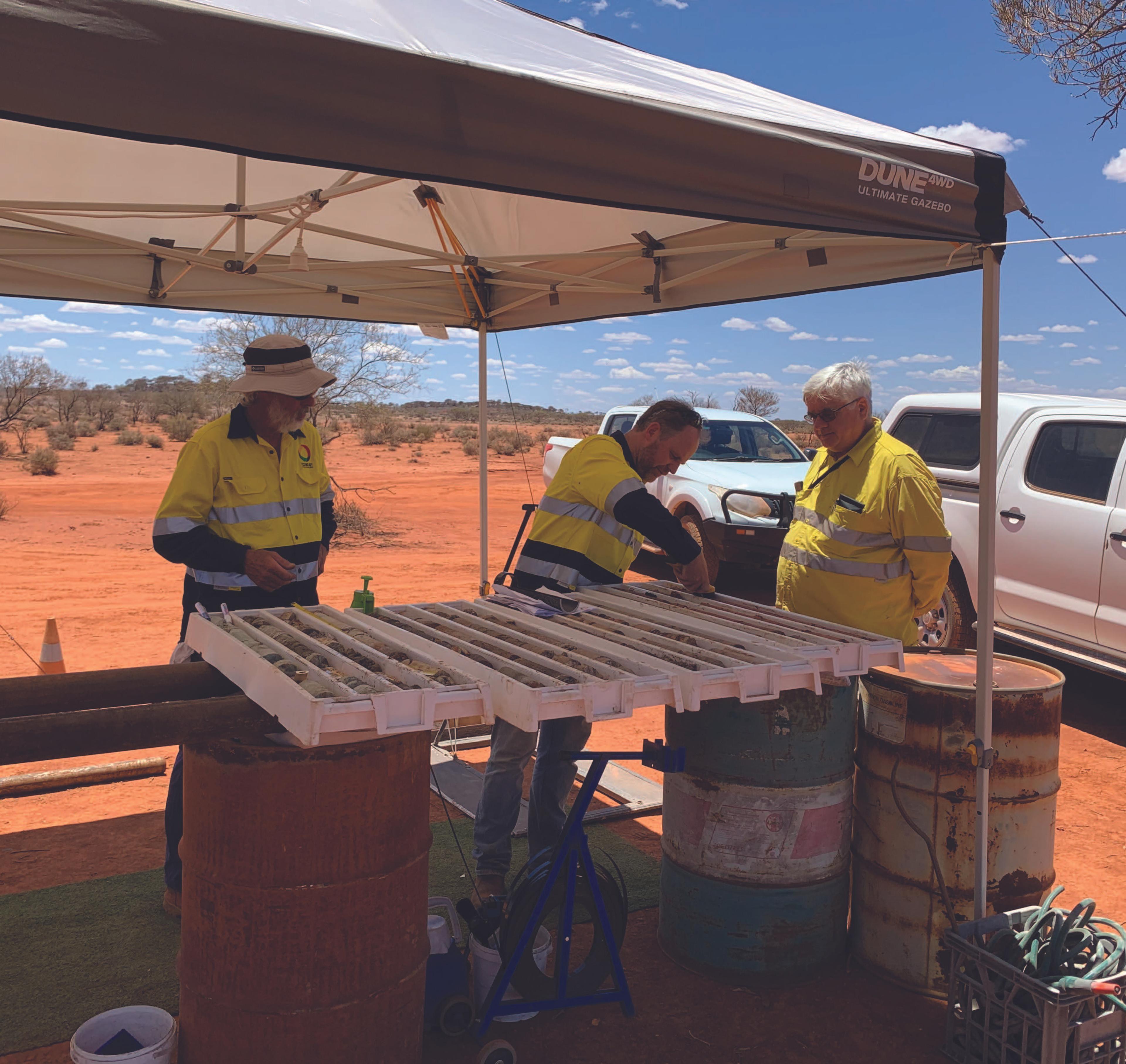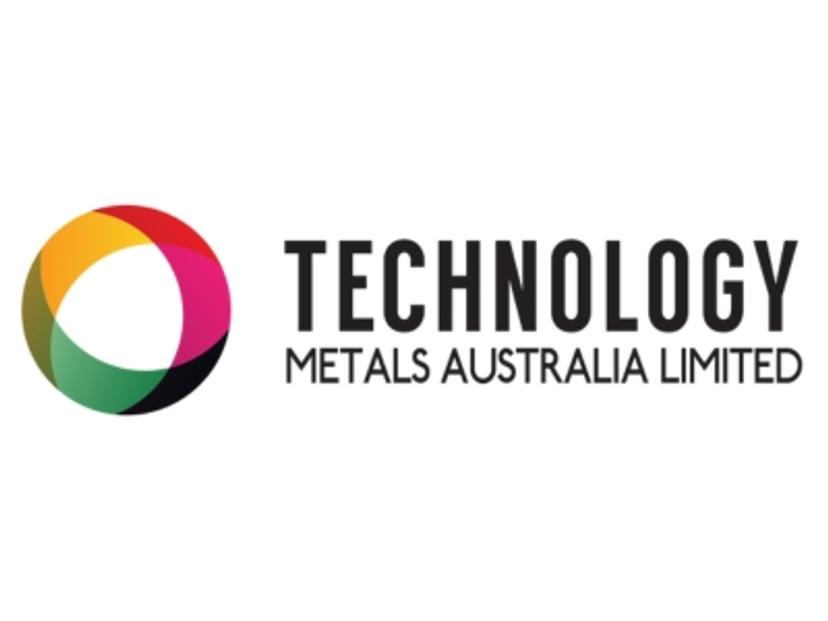Abstract
Vanadium, a versatile and strong strategic metal, plays a pivotal role in reducing the global environmental burden. Estimates indicate that the use of vanadium contributes to an annual reduction of 185 million metric tons of CO2 emissions. The soaring global demand for vanadium has been on an upward trajectory, but since 2017, a significant deficit of 17,300 metric tonnes has existed between demand and supply. Vanadium finds its primary application in the steel industry, where it enhances the properties of metal alloys, including rebar, structural steel, aircraft, and automobiles. The addition of even a small amount of vanadium can boost steel's strength by up to 100 percent while simultaneously reducing its weight by up to 30 percent. This results in higher efficiency, prolonged service life, and increased capacity across various applications, also leading to a reduction in overall CO2 emissions.
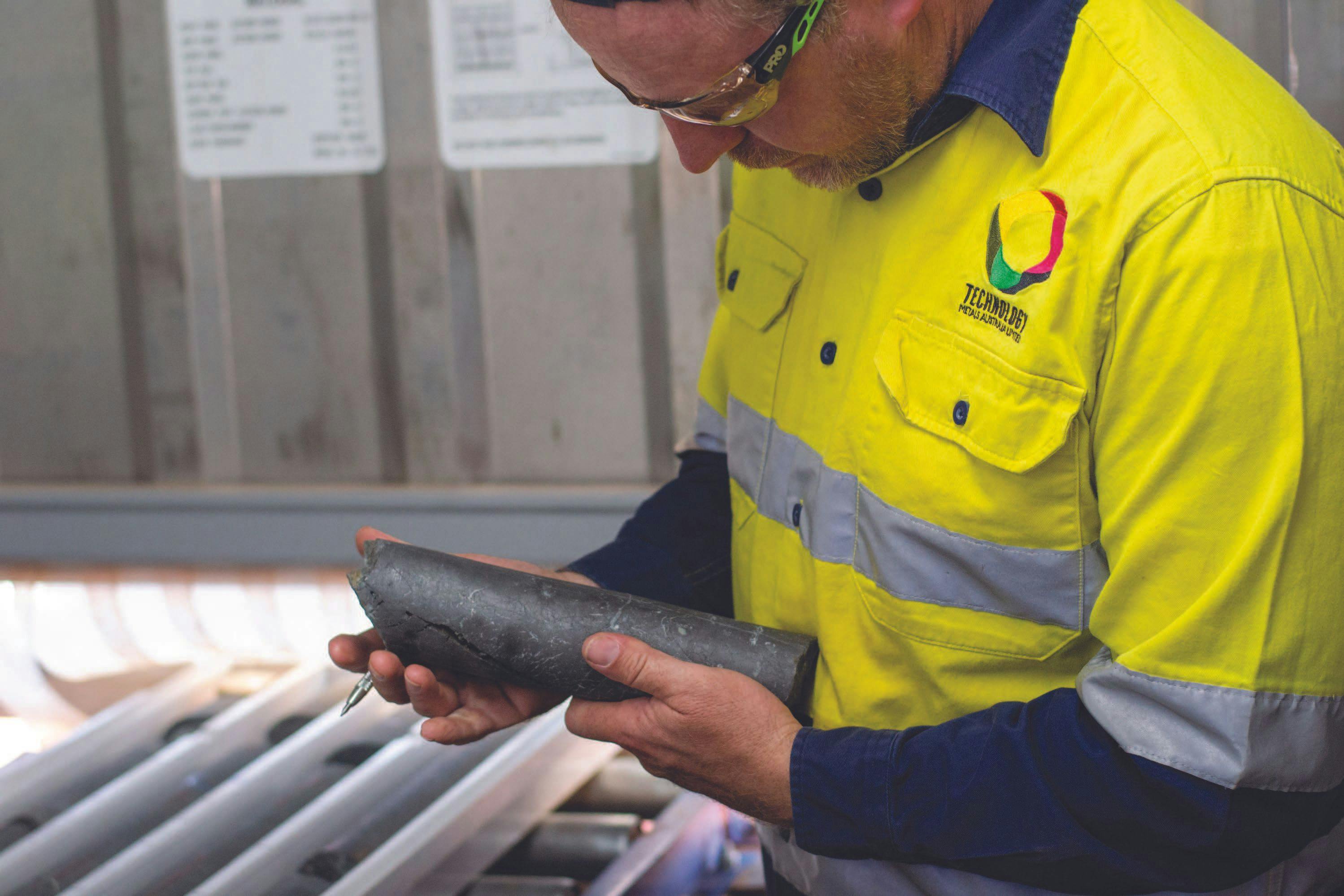
Advanced vanadium developer, Technology Metals Australia Limited (ASX: TMT) is progressing the development of the Murchison Technology Metals Project (MTMP) in Western Australia to produce high purity vanadium pentoxide (V2O5). The company is also actively exploring downstream opportunities, which include the production of vanadium electrolyte, ferrovanadium (FeV), and vanadium nitride (VN). This case study explores TMT's strategic engagement with India and provides insights into its forward-looking strategies in the dynamic vanadium industry.
Introduction
Technology Metals Australia Limited (ASX: TMT) is a future needs-oriented company that aspires to become a dominant force in both the Australian and global vanadium markets. TMT’s vision extends beyond merely mining and supplying vanadium products to end-users worldwide; it aims to participate in the value-added downstream production of critical vanadium products. This includes the production of vanadium electrolyte, a vital component for the growing vanadium redox flow battery (VRFB) industry. With demand for vanadium from the VRFB sector expected to grow to 33 percent of total vanadium demand by 2030, the company believes that its flagship Murchison Technology Metals Project (MTMP) is strategically positioned to meet this rising demand for primary vanadium.
“MTMP will produce around six percent of the world’s vanadium when it comes online. And with a large resource, it is poised to be a high quality, secure supplier over the long term.” – Ian Prentice, Managing Director, Technology Metals Australia Limited
“Vanadium has been recognised on the list of critical minerals, so the development of the MTMP will put Australia on the map as one of the world’s leading suppliers of vanadium, diversifying the supply chain. Note that Australia has the third highest economic reserve of vanadium in the world but currently no production.”
The ‘high-grade’ MTMP is located 50km south of Meekatharra in Western Australia and consists of the Gabanintha and Yarrabubba deposits. The MTMP is being developed to be a stable, secure, long-term supplier of critical minerals, with targeted average vanadium production of 12,500tpa (27.5Mlbs pa) V2O5 over a projected 25-year mine life, as well as production of a highly sought after titanium (ilmenite) by-product while mining and processing ore from Yarrabubba.
The MTMP boasts world-class vanadium ore grades and operating costs in the lowest quartile. A Definitive Feasibility Study (DFS) for Gabanintha was completed in 2019, and the Yarrabubba integration study was finalised in mid-2022. This integration allows high-grade ore from the Yarrabubba deposit to be processed at the central hub in Gabanintha. With the integration study completed, the MTMP is now advancing into the implementation phase, progressing toward project development, construction, and operation. The project holds a substantial Global Mineral Resource Estimate (MRE) of 153.7Mt at 0.8 percent Vanadium Pentoxide (V2O5).
The MTMP will be a high-revenue critical minerals project with a lengthy lifespan. Like many projects in the critical and battery mineral sector, it will require a substantial capital investment. As a junior exploration company holding such a flagship asset, raising funds is imperative. Resource Capital Funds (RCF) holds the largest share in TMT, with a corporate stake exceeding 17 percent.
BNP Paribas also has a 10 percent share, held in nominee capacity on behalf of various high-networth individual shareholders. Additionally, TMT has received a letter of interest (LoI) from EIFO, Denmark's Export Credit Agency, indicating potential financing support for the MTMP to around A$150 million, subject to various conditions and due diligence.
Securing support from sovereign funding agencies like the Northern Australia Infrastructure Facility (NAIF), and Export Finance Australia (EFA) is pivotal to advancing the development of this long-life asset, ensuring a reliable supply of a critical mineral essential for the global decarbonisation journey.
“The MTMP is proposing carbon reduction strategies that include solar energy generation, long duration battery storage, heat capture technology at the processing plant, and transition to electric options for the mobile mining fleet.
On the social front, TMT is working collaboratively with the local community and the Traditional Owners to ensure that the long-term socio-economic benefits of our Project can be shared by the community over the long mine life.”
Vanadium electrolyte, recognised for its safety and reliability in VRFB applications, will be a key downstream product the Company is pursuing. TMT has successfully produced its maiden electrolyte product, meeting the specifications of major VRFB manufacturers.
To support its energy storage endeavours, the company has established vLYTE as a wholly owned subsidiary.
Additionally, TMT plays a crucial role as a sponsor in the Future Battery Industries Cooperative Research Centre (FBICRC), specifically in the Development of Electrolyte project. This involvement helps the Company determine the necessary vanadium pentoxide specifications for downstream electrolyte processing.
Committed to a cleaner, sustainable future, the Company prioritises environmentally and socially responsible practices in both its mining operations and downstream processing activities.
Technology Metals’ development strategy, including engagement with vanadium customers, vendors, and financiers, is based on clearly defined global target markets for its product – steel and batteries.
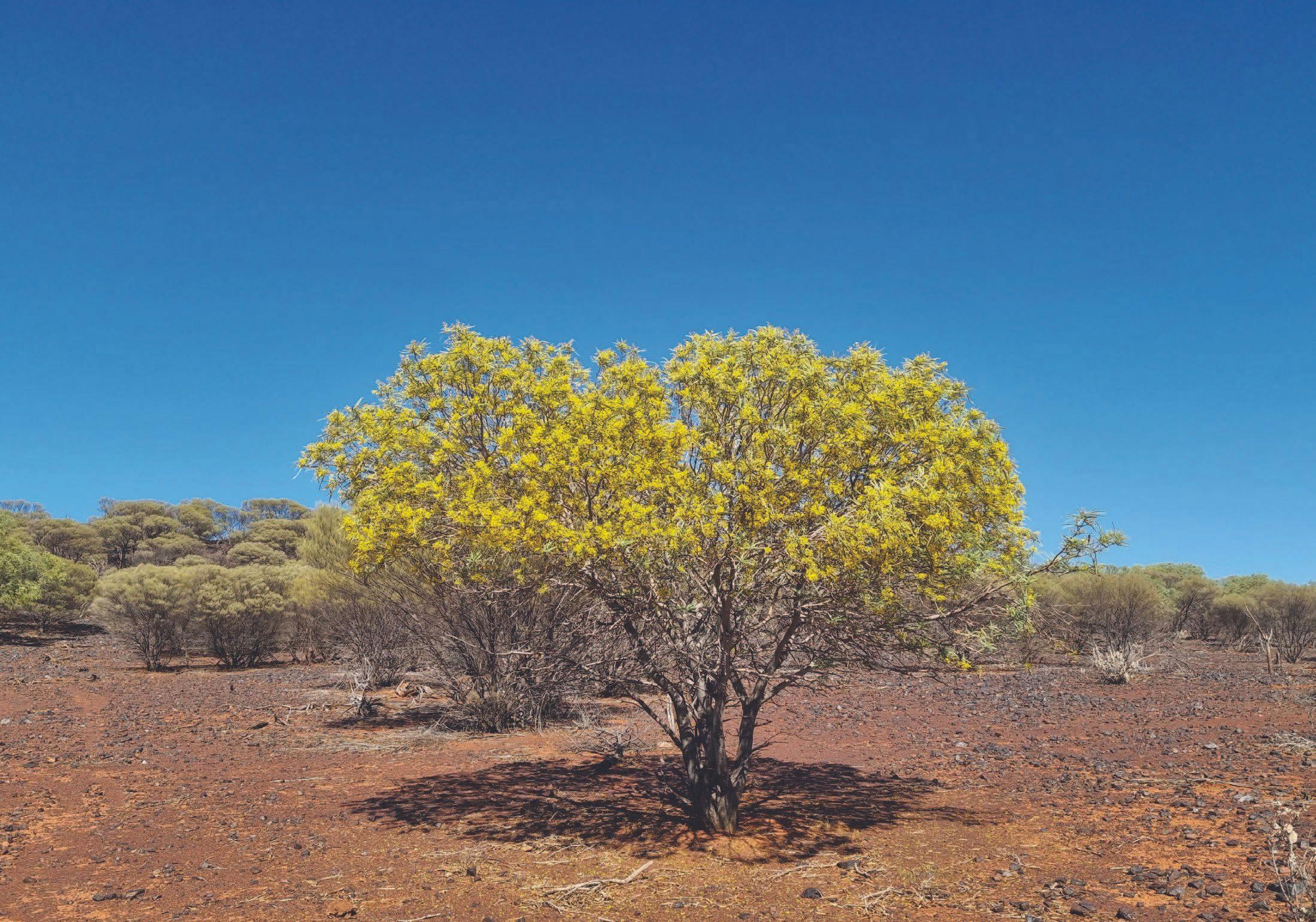
India Strategy
As one of the world's fastest growing economies, India presents immense opportunities in two key vanadium markets: steel and vanadium redox flow batteries. Both these sectors are currently witnessing exponential growth within the Indian landscape. The Indian government has adopted policies to encourage the production of specialised steel, prompting substantial commitment from the Indian steel industry, to invest US$100-140 billion in steel manufacturing between 2021 to 2032. India’s rising urbanisation trend is fuelling construction activities, particularly with infrastructure and highspeed rail projects demanding substantial quantities of high-strength vanadium alloy steel.
India is also rapidly emerging as a global powerhouse in green energy technologies, including the vanadium redox flow batteries market. The nation has recently allocated a substantial US $4.3 billion investment toward achieving its Net Zero energy transition goals, reaffirming its commitment to sustainable and environmentally friendly energy solutions.
“In both the steel and energy storage sectors, it makes excellent commercial sense to build a strong relationship with the Indian market. Our MTMP is located in the world’s most attractive mining jurisdiction, Western Australia, and being on the west coast of Australia, the proximity to India is a clear advantage in terms of supply chain logistics and carbon footprint.”
TMT has started building relationships with Indian steelmaking giant Tata Steel Limited in late 2022, and with fast-growing VRFB manufacturer Delectrik Systems Pvt. Ltd in early 2023. The memoranda of understanding signed with these companies contemplate the supply of the company’s vanadium products to the steel and VRFB sectors, respectively.
“The current discussions with respect to Tata Steel and Delectrik Systems centre around commercial direct business-to-business offtake arrangements through contracts of supply for the company’s vanadium products as well as technical collaboration in the optimisation in the specification and production of the vanadium products.”
“Tata Steel is one of the largest steelmakers in the world and having them come on board with a Memorandum of Understanding with us shows their motivation for supply chain security when it comes to vanadium as a steel strengthening element as well as the quality of the MTMP.”
The Company is also assessing joint venture style developments of downstream processing opportunities to broaden the uptake of its products in the Indian market and support the growth in vanadium consumption. TMT’s approach is to work with dependable partners, and tailor approaches to meet objectives of both parties in India.
The Company identified an opportunity to engage in the Indian market and completed initial market investigation visits in early 2019.
“In early 2022 Technology Metals sought the assistance of well credentialled Australian - Indian advisory group, Newland Global Group (NGG) to refine and accelerate its Indian market strategy.”
The Western Australian state government has taken proactive steps to support local businesses, facilitating their entry into global markets, with a particular focus on India. Recognising the strategic importance of the Indian market and its growing demand for vanadium, both in the established steel industry and the emerging energy storage sector, Ian Prentice, the Managing Director of Technology Metals, partook in the Invest and Trade WA mission to India in July 2022. During this mission, Mr. Prentice engaged in a series of activities arranged by the government and various corporate entities. These included attending meetings, visiting sites, participating in industry briefings, contributing to roundtable discussions, and networking at various events. This trade mission provided valuable insights and reinforced the company's conviction that India is a pivotal market that merits a strong presence.
“Given vanadium is a specialised metal product with very specific industrial applications, the India market entry strategy involved a highly targeted approach towards the main end users, namely the steel and energy storage sectors.”
“Tata Steel Limited is the biggest steelmaker in India with an annual crude steel production capacity of 34Mtpa and procures most of its vanadium supply from China. Tata Steel is looking to grow its vanadium consumption in line with its expanding steel business and looking to diversify its supply chain, so it was an opportune time for us to form a relationship with Tata Steel and enter this sizable steel market.”
“With regards to the Indian energy storage sector, Delectrik Systems has been designing and manufacturing VRFB systems ranging from kW to MW scale since 2016 and this year they already have 100 VRFB orders on their order book. This MoU with Delectrik Systems was therefore another strategic step into the emerging VRFB market.”
“Working with Newland Global Group enabled us to gain a better understanding of the evolving political and business environment in India and modify our strategy to reflect this. This is reflected in the change from an initial focus largely on the Indian steel industry to a broader joint focus on the steel industry alongside the rapidly emerging stationary storage (battery) market.”
Technology Metals is constantly adjusting its strategy based on factors including market dynamics, geopolitics, and economic conditions. The world’s vanadium market is currently dominated by China and Russia, with South Africa and Brazil among the top four producers.
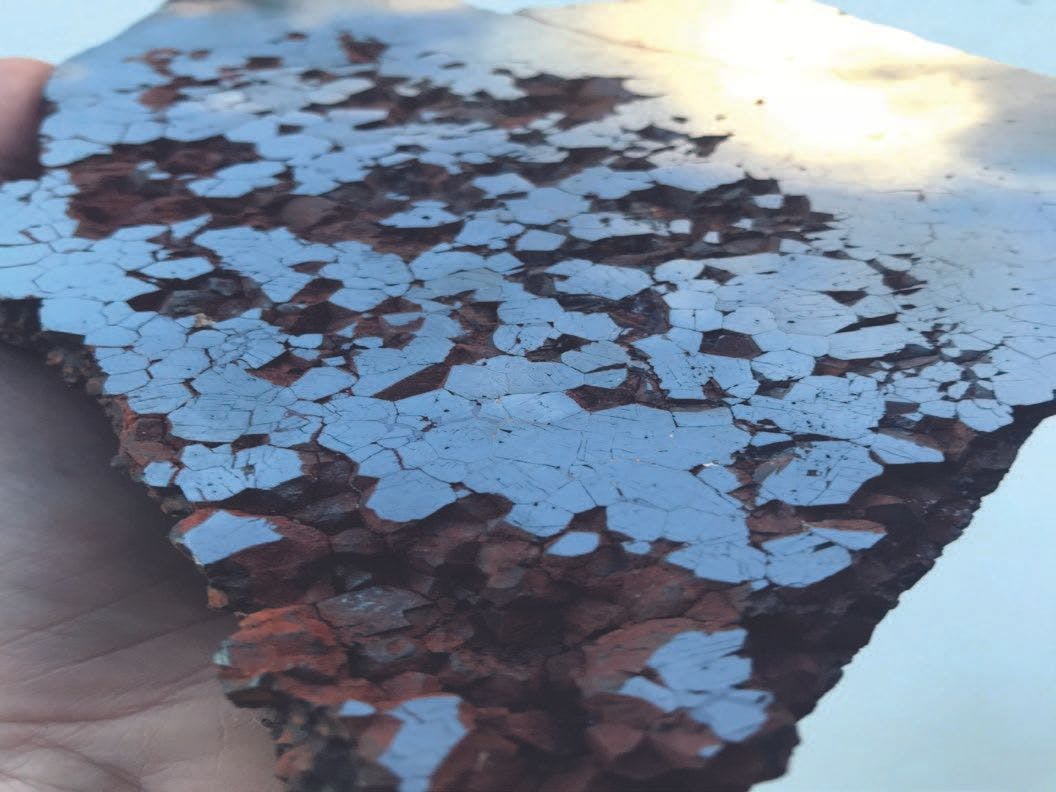
“China currently produces 62% of global vanadium and Russia 16%. The current geopolitical scenario and the international commitment to carbon emissions reduction under the Paris Agreement contribute to making the MTMP an important project globally.”
Given the global geopolitical situation, TMT identified a significant shift in the preferences of Asian, European, and North American markets. These markets are increasingly seeking more geopolitically aligned sources for their vanadium supply. Australia, with its robust and expanding relationship with India, its proximity to the Indian market, and its ability to offer vanadium at competitive costs, has emerged as an appealing supply source for India. Equally, India's rapid economic growth and extensive infrastructure development initiatives have made it an attractive market for Australian companies like TMT.
Seeing The Future
India’s industry competitiveness and transition to Industry 4.0 depends on the scale and speed of its advanced manufacturing and sophisticated applications, that requires a stable supply of critical minerals. In 2019, the Australian government through its ‘Critical Minerals Strategy’ has positioned itself as a ‘world powerhouse’ in critical minerals. Australia has reserves of 21 of the 49 critical minerals identified by the Government of India, which could play an important role in securing India’s supply chains. Both countries have agreed to explore opportunities to increase trade, investment and research and development in critical minerals. India has set goals of meeting 50 percent of its energy requirement through renewable energy, and expand electric mobility by 2030, to 30 percent of total vehicles. The AustraliaIndia Critical Minerals Investment Partnership is focused on offtake and investment agreements with development-ready projects to support ‘Make in India’ manufacturing plans.

Critical minerals are important across economic, strategic, technology and climate interests with varied industries including telecommunications, electronics, energy, healthcare, defence, aerospace, and transportation relying on it. The interim trade deal called the Australia-India Economic Cooperation and Trade Agreement (AI-ECTA) supports growth and investment in the critical minerals, by eliminating and reducing customs duties for these minerals.
Australia and India have also partnered to accelerate the production and deployment of renewable energy technologies including - solar photovoltaic (PV) technologies, clean hydrogen technologies, including electrolysers.
There’s also an opportunity to align Australia’s resource capacity and capabilities, its depth of experience in technology, regulation, operations, and sustainability with India’s manufacturing potential and commercial-led innovation opportunities, thereby exploring a whole-of-value chain perspective that promotes the development of upstream extraction, midstream processing, and downstream manufacturing.
“AI-ECTA enhances the competitiveness of Australian vanadium, especially in India. With our long experience in mining, we can offer attractive exports to India.
This also fosters stronger, long-term relationships and business network opportunities for Australian companies like TMT.”
Planning Ahead
As TMT continues to gain ground in India, key lessons for critical miners from this case study are –
- Undertake thorough research on the target sectors in India
- Understand the demand and supply dynamics for your products, and the value proposition your products can provide to the chosen sectors
- Engage an experienced advisor that understands the ambitions of both markets
- Identify Australian state and federal government initiatives and incentives that may support market entry and global export opportunities for Australian businesses.
While Technology Metals is in the initial phases of its engagement with India, its strategic approach and results have placed it in a leading position. Conducting an early reconnaissance, collaborating with a well-suited cross-border advisor, and the opportunity to build direct connections by participating in delegation visits have proven to be pivotal steps. The Company is looking forward to growing its relationships within the Indian steel and VRFB sectors, with the next steps being crucial in the development of long-term mutually beneficial business relationships.
